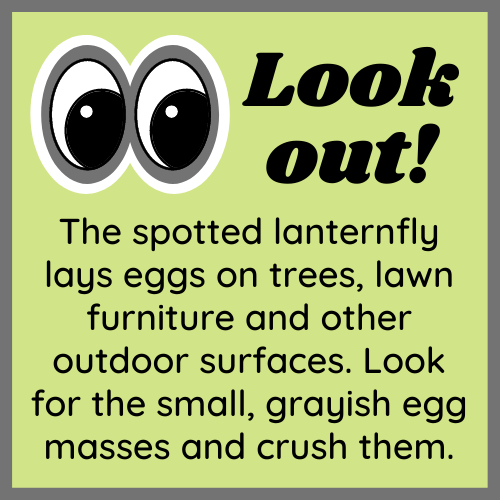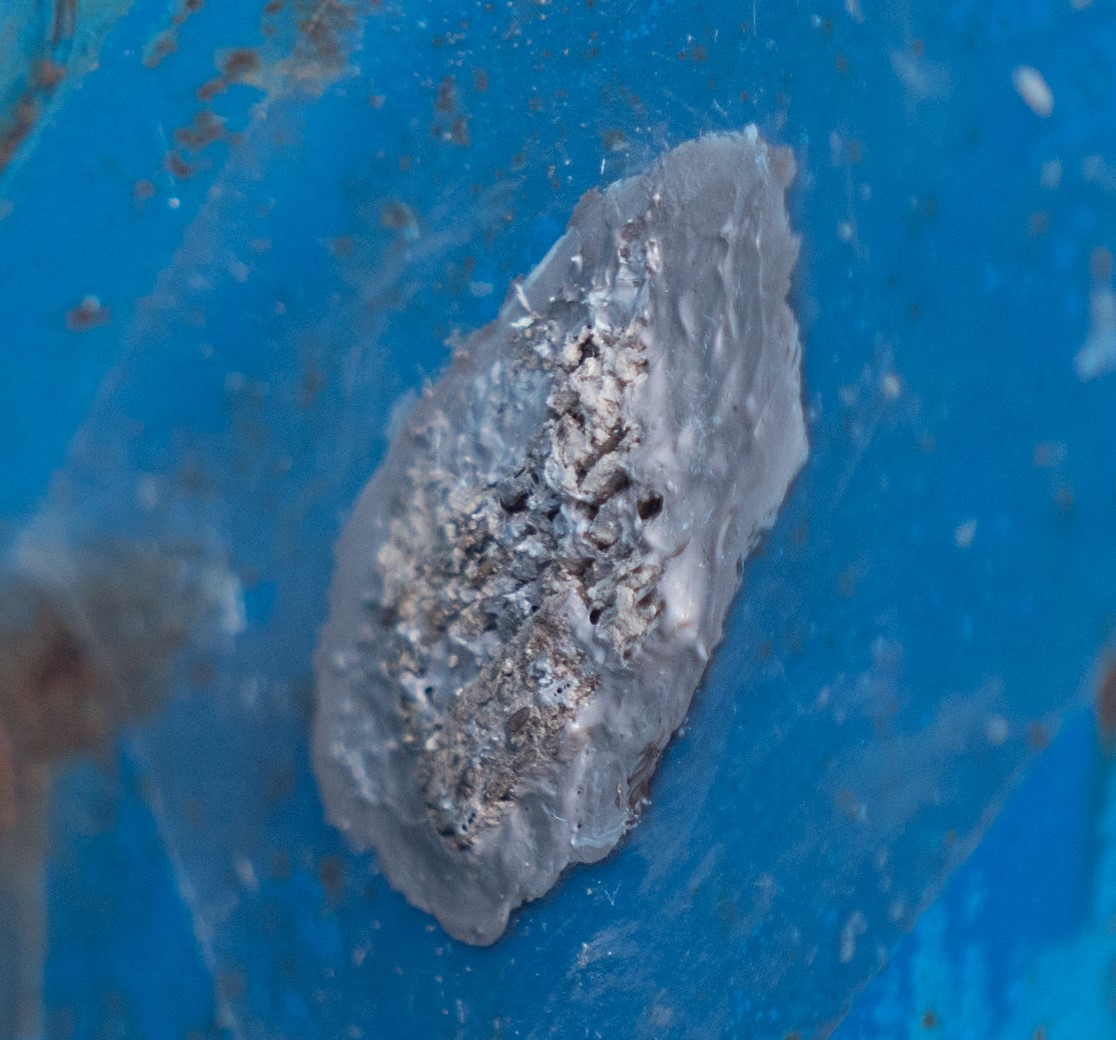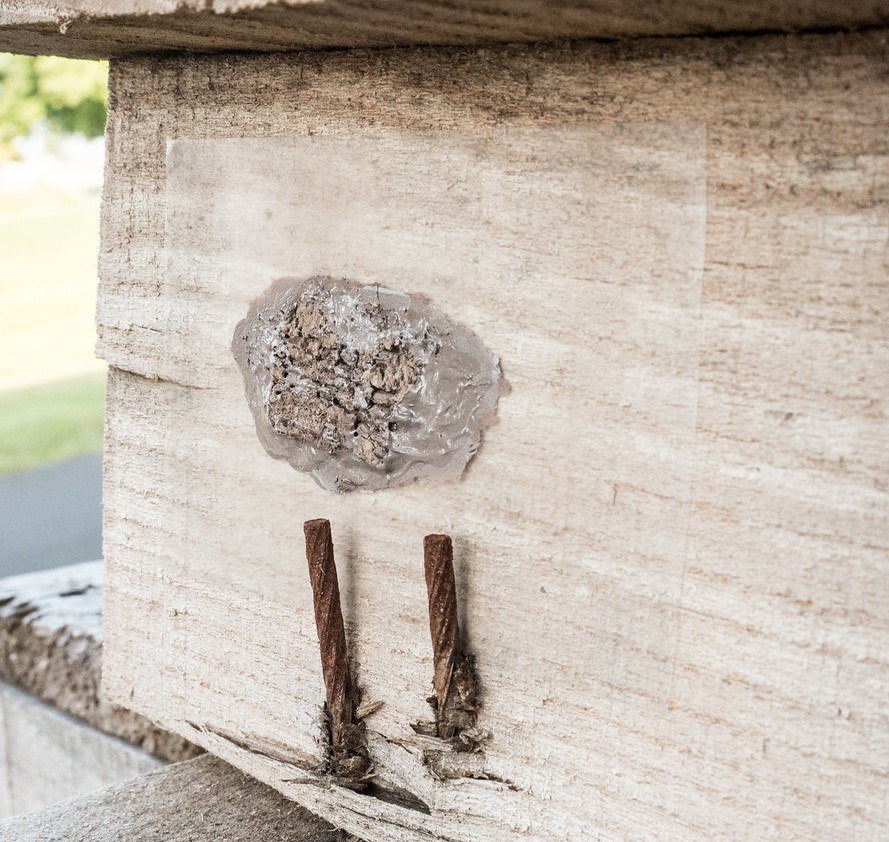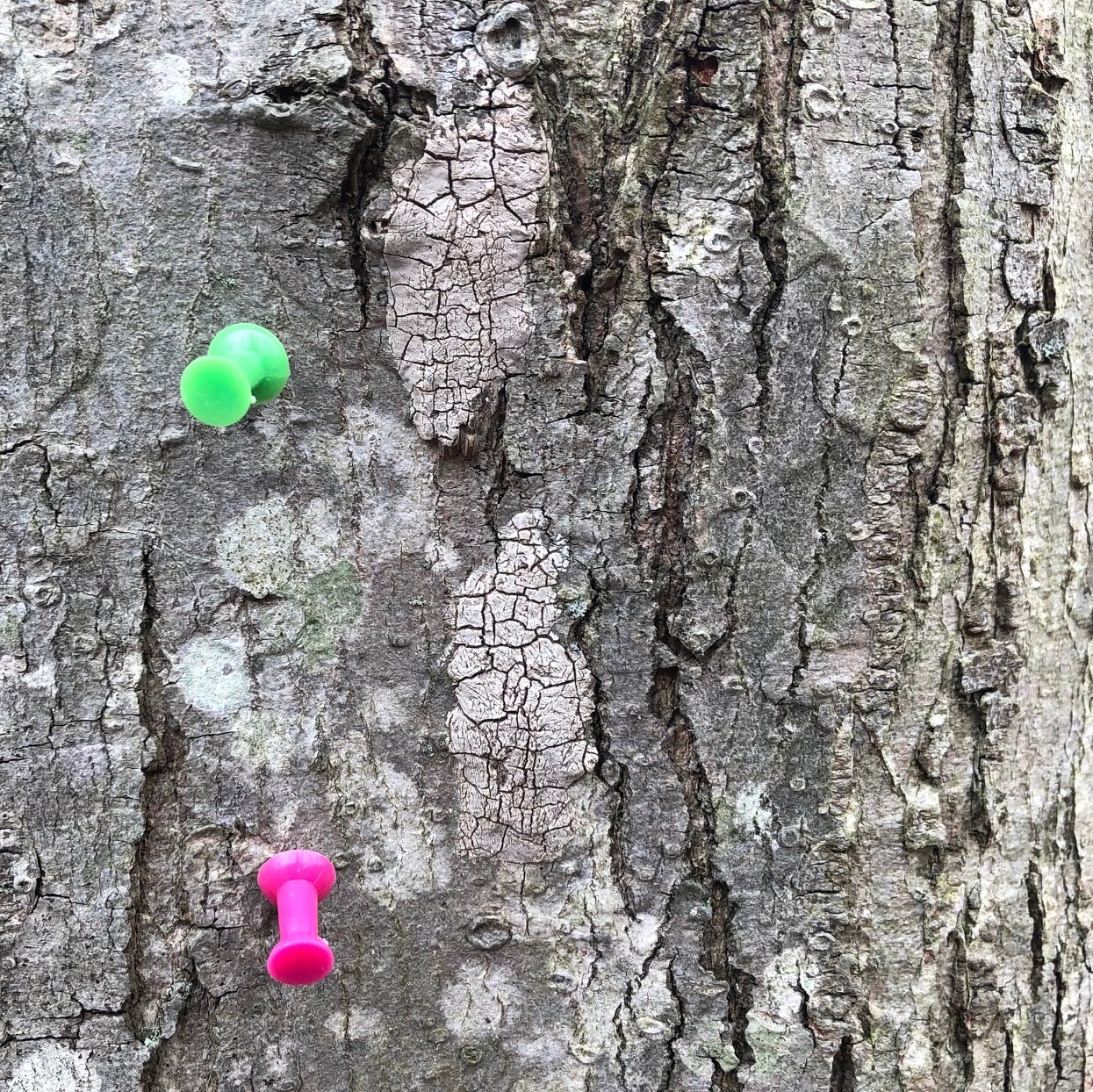 Union County, NJ – March 10, 2022 — Union County residents can help fight back against the spotted lanternfly by destroying its eggs before they hatch. The spotted lanternfly is an invasive pest that can weaken trees, damage ornamental plants and destroy fruit trees, hops, grape vines and other crops. They also excrete a “honeydew” that can grow moldy and foul outdoor spaces including patios and yard furniture.
Union County, NJ – March 10, 2022 — Union County residents can help fight back against the spotted lanternfly by destroying its eggs before they hatch. The spotted lanternfly is an invasive pest that can weaken trees, damage ornamental plants and destroy fruit trees, hops, grape vines and other crops. They also excrete a “honeydew” that can grow moldy and foul outdoor spaces including patios and yard furniture.
Each fall the adult spotted lanternfly lays eggs on outdoor surfaces such as tree trunks, lawn furniture, all sorts of vehicles, and any other item that remains in place for a period of time. The egg masses should be crushed and scraped off before they hatch in the spring.
“Union County residents can take action against this destructive pest now, by inspecting their yards, and removing the eggs before they hatch,” said Commissioner Chair Rebecca Williams.
The U.S. Department of Agriculture recommends removing and destroying the egg masses by hand as the most effective method currently available to residents.
To spot the egg masses, check trees and yard items for small, textured grayish patches about one inch long.
The egg masses are relatively easy to spot on many outdoor surfaces including grills, lawnmowers, pallets, storage containers and other items. They may be more difficult to spot on neutral, bumpy surfaces like tree bark and stones. Residents are also asked to check their cars, boats, recreational vehicles and bicycles, especially before traveling.
To destroy an egg mass, crush and scrape it into a bag or other container, and dispose in trash. Any handy tool, such as a stick or plastic card, can be used to crush the masses.
When the eggs hatch in the spring, the young lanternflies emerge as flightless insects that resemble small, colorful beetles. Over the summer they mature into adults, which are easily recognized by black speckles on papery white upper wings and bright red lower wings.
Residents can start watching their yards for the adults beginning in July, especially at dusk and at night when they tend to gather in large groups on tree trunks and plant stems. In particular, the common ailanthus tree, or “tree of heaven,” is known to attract adults.
Union County residents who see a spotted lanternfly should kill it immediately, by stomping it under foot. If it hops away, follow it and try again when it settles.
For more information, including photos of the lanternfly and its eggs at various stages, visit the New Jersey Division of Agriculture at nj.gov/agriculture.
Additional information is available from Rutgers University at njaes.rutgers.edu/spotted-lanternfly. Sightings of the insect can also be reported to Rutgers University through the online reporting tool.
Union County is one of three counties in New Jersey participating in a U.S. Department of Agriculture research project to assess various methods of mitigating the invasion. For more information from the USDA visit aphis.usda.gov/hungrypests/slf.
For quick links to all Union County environmental programs and activities visit The Green Connection, ucnj.org/green-connection.



For information and updates on all Union County services during the COVID-19 outbreak, including free vaccination, free testing, emergency food distribution and other support services, visit ucnj.org/covid19. General information about COVID-19 is available through the New Jersey Department of Health at nj.gov/health.
# #
For all Union County programs and services visit ucnj.org, call the Public Info Line, 877-424-1234, email info@ucnj.org or use the online Contact Form.
Connect with Union County on social media.
